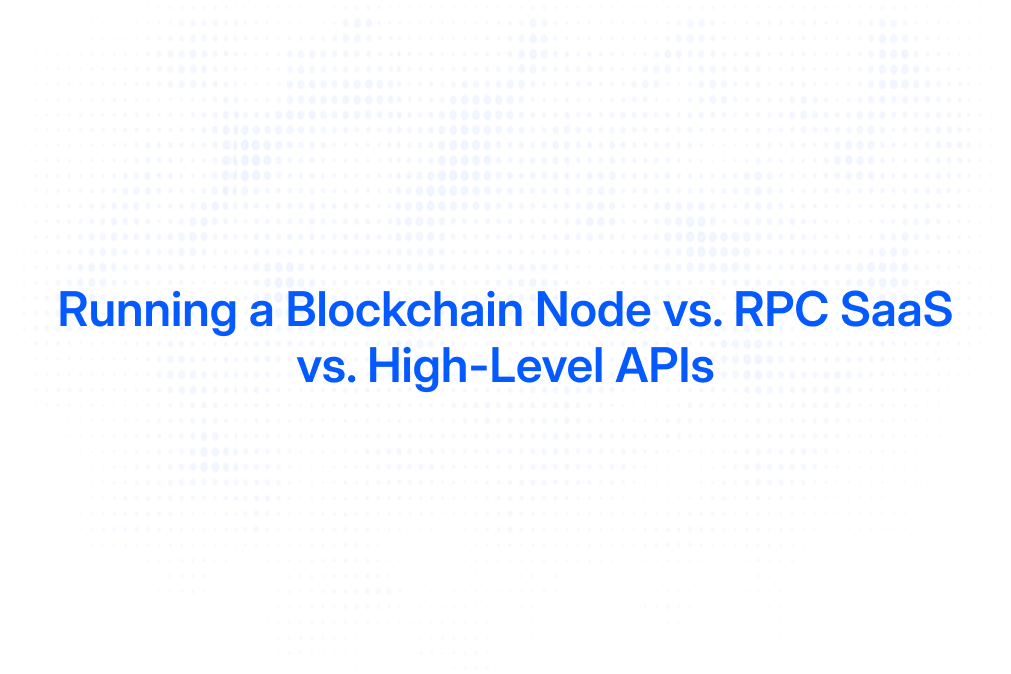What is Google MCP (Multi-Cloud Proxy) and Why It Matters for Blockchain
As blockchain technology continues to evolve, the infrastructure supporting decentralized applications (dApps) and Web3 services must keep pace with increasing demands for reliability, scalability, and performance. One key innovation gaining traction in this space is Google’s Multi-Cloud Proxy (MCP). But what exactly is Google MCP, and why is it becoming a critical component for blockchain infrastructure? This article explores the fundamentals of Google MCP, its role in blockchain, and the tangible benefits it offers to developers and enterprises alike.
Understanding Google MCP: The Basics
Google MCP, or Multi-Cloud Proxy, is a cloud networking solution designed to enable seamless, secure, and efficient routing of API requests across multiple cloud providers. Unlike traditional single-cloud architectures, MCP allows applications to leverage resources from different cloud environments simultaneously, optimizing for performance, redundancy, and cost.
At its core, MCP acts as an intelligent proxy layer that orchestrates traffic between clients and backend services hosted on various cloud platforms. This multi-cloud approach mitigates the risks associated with vendor lock-in and single points of failure, which are especially critical considerations for blockchain applications that require high availability and fault tolerance.
How MCP Works in Practice
MCP integrates with cloud APIs to dynamically route requests based on criteria such as latency, availability, and cost. For example, when a decentralized application queries blockchain nodes or RPC (Remote Procedure Call) endpoints, MCP can automatically select the fastest or most reliable provider at that moment. This auto-routing capability ensures that dApps maintain uninterrupted access to blockchain networks, even if one cloud provider experiences an outage or degraded performance.
Moreover, MCP enhances security by providing a unified access control mechanism across different cloud environments. This means that organizations can enforce consistent security policies regardless of where their services are hosted. By implementing features such as authentication, encryption, and logging at the proxy layer, MCP not only simplifies the management of security protocols but also reduces the attack surface, making it harder for malicious actors to exploit vulnerabilities. Additionally, the centralized monitoring capabilities of MCP allow developers to gain insights into traffic patterns and performance metrics, enabling them to make informed decisions about resource allocation and optimization.
Furthermore, the flexibility of MCP supports various deployment models, whether an organization is looking to implement a hybrid cloud strategy or fully embrace a multi-cloud architecture. This adaptability is particularly beneficial for businesses that are scaling rapidly or experimenting with new technologies. By allowing teams to choose the best cloud services for their specific needs, MCP fosters innovation and agility, ensuring that companies can respond quickly to market changes and customer demands. As a result, organizations can focus on developing their applications without being bogged down by the complexities of managing multiple cloud environments.
The Role of Google MCP in Blockchain Infrastructure
Blockchain applications rely heavily on RPC endpoints to interact with decentralized networks. These endpoints serve as gateways for reading blockchain data and submitting transactions. Ensuring these RPC calls are routed efficiently and reliably is paramount for user experience and the overall health of the blockchain ecosystem.
Google MCP enhances blockchain infrastructure by providing multi-cloud RPC routing, which is a significant step forward from traditional single-provider setups. Here’s why MCP matters:
1. Improved Reliability Through Redundancy
Blockchain dApps can suffer from downtime or degraded performance if their RPC provider becomes unavailable. MCP’s multi-cloud proxy architecture introduces redundancy by routing requests across multiple RPC providers hosted on different cloud platforms. This redundancy drastically reduces the risk of outages, ensuring continuous service availability.
2. Reduced Latency with Multi-Region Routing
Latency is a critical factor in blockchain interactions, affecting transaction speeds and user responsiveness. MCP supports multi-region routing, directing RPC requests to the nearest or fastest cloud region available. This geographic optimization minimizes latency and improves the responsiveness of blockchain applications globally.
3. Cost Optimization and Flexibility
Different cloud providers have varying pricing models and performance characteristics. MCP enables blockchain projects to balance cost and performance by dynamically routing traffic to the most cost-effective provider without sacrificing reliability. This flexibility is especially valuable for startups and enterprises aiming to optimize operational expenses.
Why Multi-Cloud Matters for Web3 Developers
The decentralized ethos of Web3 demands infrastructure that is equally resilient and distributed. Relying on a single cloud provider or RPC endpoint contradicts this principle and introduces risks such as vendor lock-in and single points of failure. Google MCP aligns with the Web3 philosophy by enabling multi-cloud strategies that enhance decentralization at the infrastructure level.
Mitigating Single Provider Risks
Using a single RPC provider can expose dApps to outages and increased latency during peak times. MCP’s multi-cloud proxy approach distributes requests across multiple providers, mitigating these risks. This strategy not only improves uptime but also enhances security by reducing dependency on any one provider.
Scaling Blockchain APIs Seamlessly
As blockchain applications scale to handle millions of API calls, managing infrastructure complexity becomes a challenge. MCP simplifies this by orchestrating API traffic across multiple clouds, allowing developers to scale seamlessly without worrying about backend bottlenecks or capacity constraints.
Comparing Google MCP with Traditional Cloud RPC Solutions
While Google Cloud offers robust RPC solutions, MCP introduces a new standard by extending capabilities across multiple cloud providers. This distinction is crucial for blockchain projects that require the highest levels of uptime and performance.
Google Cloud RPC vs. MCP Blockchain Proxy
Google Cloud RPC services typically operate within a single cloud environment, limiting redundancy and geographic diversity. In contrast, MCP’s multi-cloud proxy architecture enables routing across Google Cloud, AWS, Azure, and other providers, providing superior fault tolerance and global reach.
Future-Proofing Blockchain Infrastructure
With the blockchain ecosystem rapidly evolving, infrastructure that can adapt to changing demands is essential. MCP’s multi-cloud model future-proofs blockchain applications by offering flexibility to integrate new providers, optimize routing strategies, and leverage emerging cloud innovations without major overhauls.
Practical Use Cases of Google MCP in Blockchain
Several blockchain projects and Web3 developers are already leveraging Google MCP to enhance their infrastructure. Here are some practical scenarios where MCP adds significant value:
Decentralized Finance (DeFi) Platforms
DeFi applications require real-time data access and transaction processing. MCP ensures these platforms maintain low latency and high availability by routing RPC calls through the best-performing cloud providers at any given time, preventing transaction delays and failures.
NFT Marketplaces
NFT marketplaces depend on reliable blockchain data feeds to display ownership and metadata accurately. MCP’s multi-cloud routing reduces the risk of data inconsistencies caused by RPC outages, enhancing user trust and platform stability.
Enterprise Blockchain Solutions
Enterprises integrating blockchain into their operations demand stringent uptime and security standards. MCP’s ability to orchestrate traffic across multiple clouds aligns with enterprise-grade requirements for disaster recovery, compliance, and performance.
Conclusion: Embracing MCP for a Resilient Blockchain Future
Google MCP represents a pivotal advancement in blockchain infrastructure, addressing critical challenges around reliability, latency, and cost. By enabling multi-cloud RPC routing, MCP empowers Web3 developers and enterprises to build more resilient, scalable, and efficient applications.
As the blockchain landscape grows increasingly complex, adopting multi-cloud strategies through solutions like Google MCP will be essential for maintaining competitive advantage and delivering seamless user experiences. For blockchain projects aiming to reduce downtime, optimize costs, and future-proof their infrastructure, Google MCP is not just an option—it’s a necessity.
Ready to take your blockchain project to the next level with the resilience and efficiency of multi-cloud strategies? Uniblock is here to streamline your Web3 infrastructure needs. With our platform, you can effortlessly connect to blockchain data through a single API endpoint that intelligently routes traffic across multiple providers. Join the ranks of over 2,000 developers on 100+ chains who trust Uniblock to maximize uptime, slash latency, and cut infrastructure costs. Say goodbye to vendor lock-in and scale your dApps, tooling, or analytics with confidence. Start building with Uniblock today and unlock the full potential of a decentralized future.
.svg)


.png)



